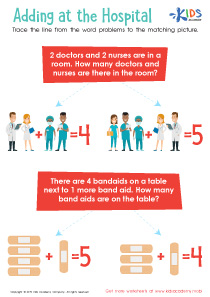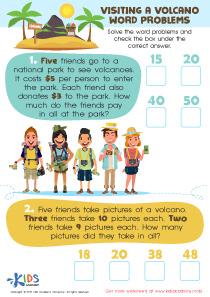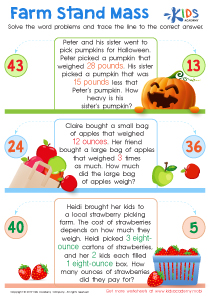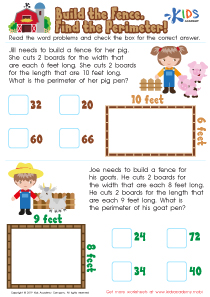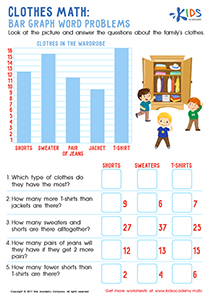Normal Two-step Word Problems Worksheets for Ages 6-9
13 filtered results
-
From - To
Discover engaging Normal Two-Step Word Problems Worksheets designed specifically for children aged 6-9! These worksheets help young learners develop critical thinking and problem-solving skills through age-appropriate scenarios that require two-step calculations. With colorful illustrations and relatable contexts, students will enjoy tackling mathematical situations that incorporate addition, subtraction, multiplication, and division. Each worksheet encourages children to read carefully, understand the problem, and compute solutions independently, building their confidence in math. Perfect for classrooms or at-home learning, these resources aim to foster a love for math while strengthening foundational skills. Start your child's journey to becoming a math whiz today!


Tricky Problems Worksheet: Part 1


Enrichment -2 Step Word Problems Worksheet


Adding Flower Petals Worksheet
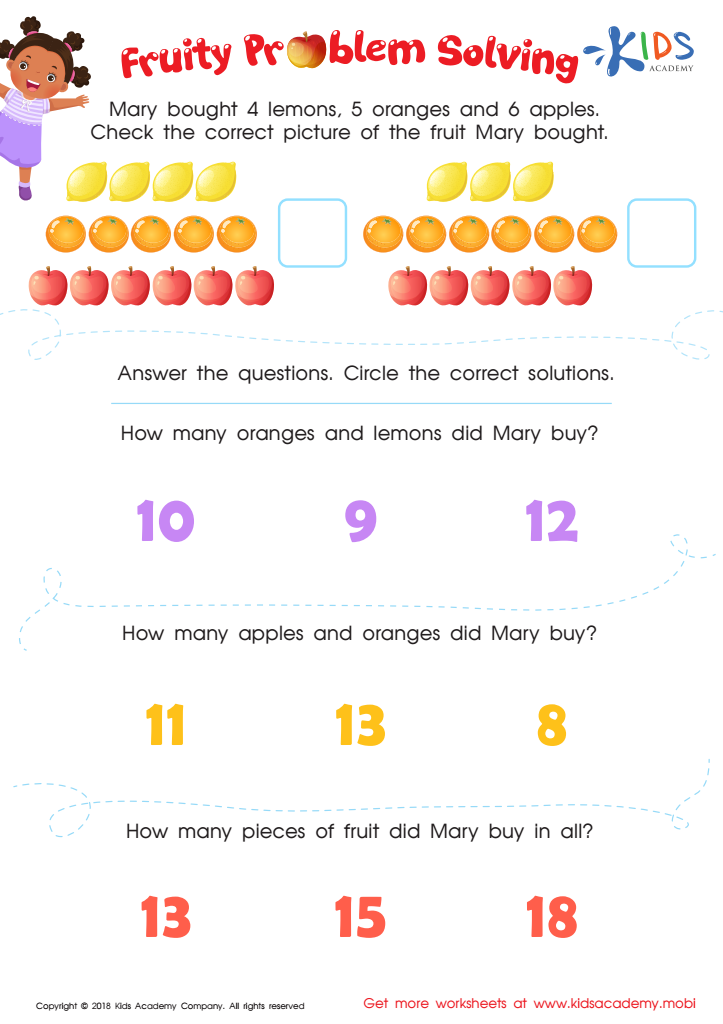

Fruity Problem Solving Worksheet
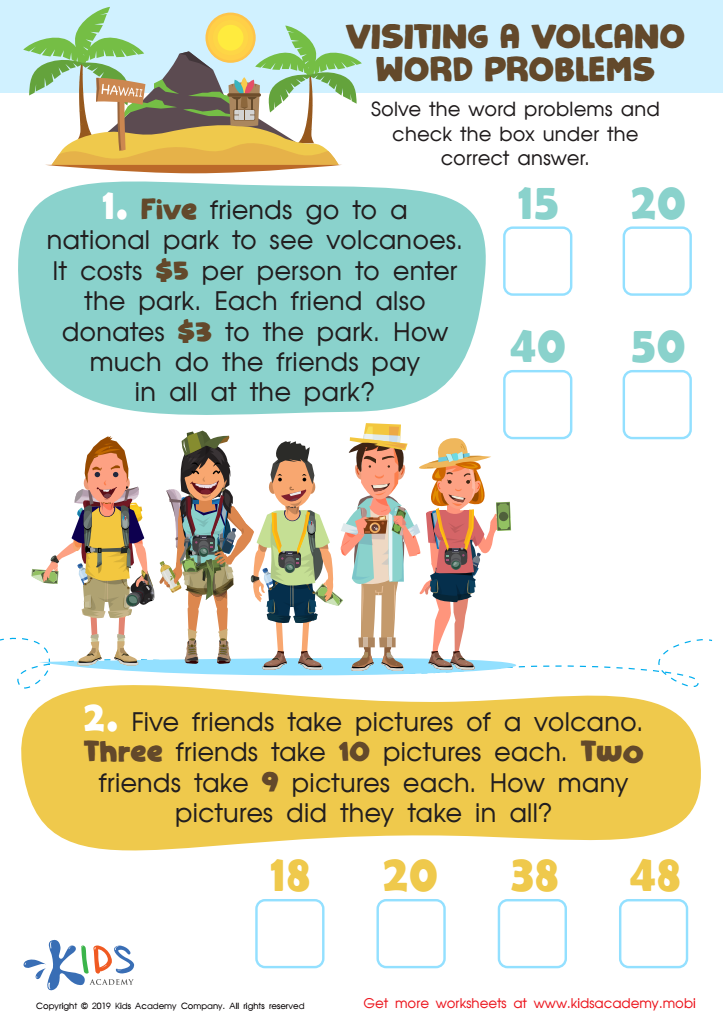

Visiting a Volcano Word Problems Worksheet
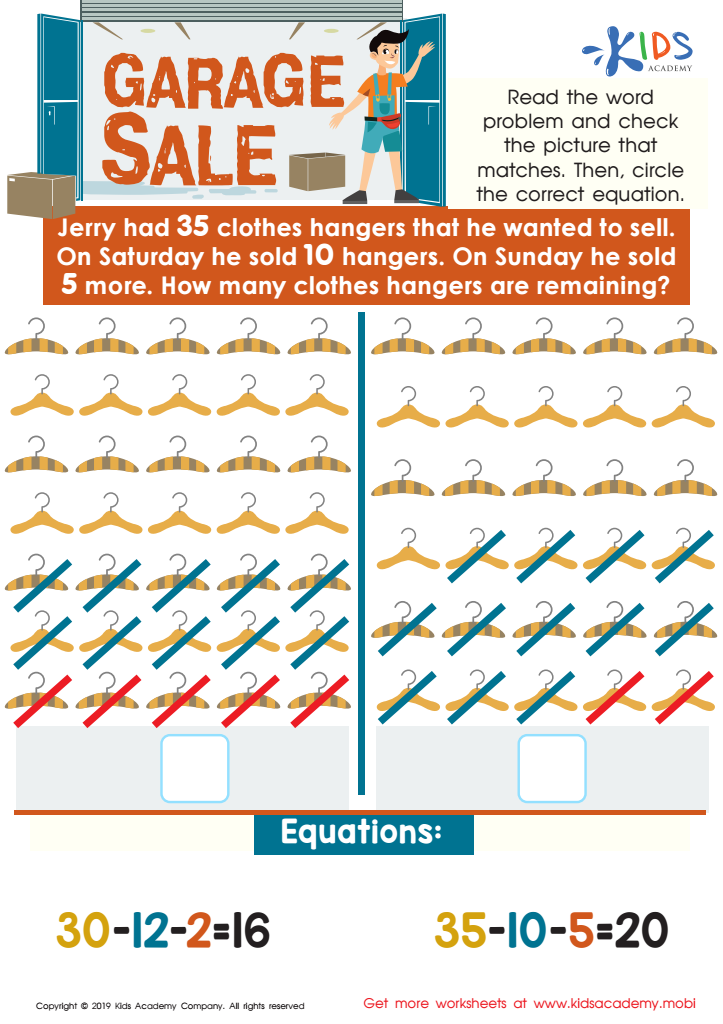

Garage Sale Worksheet


Tricky Problems Worksheet: Part 2
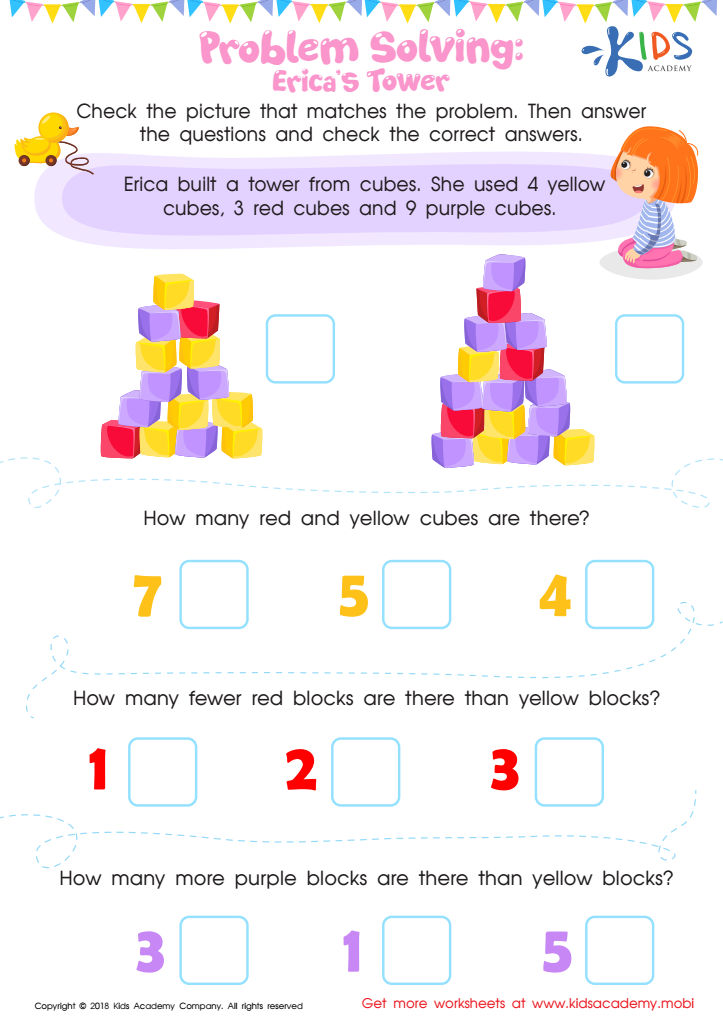

Problem Solving: Erica's Tower Worksheet
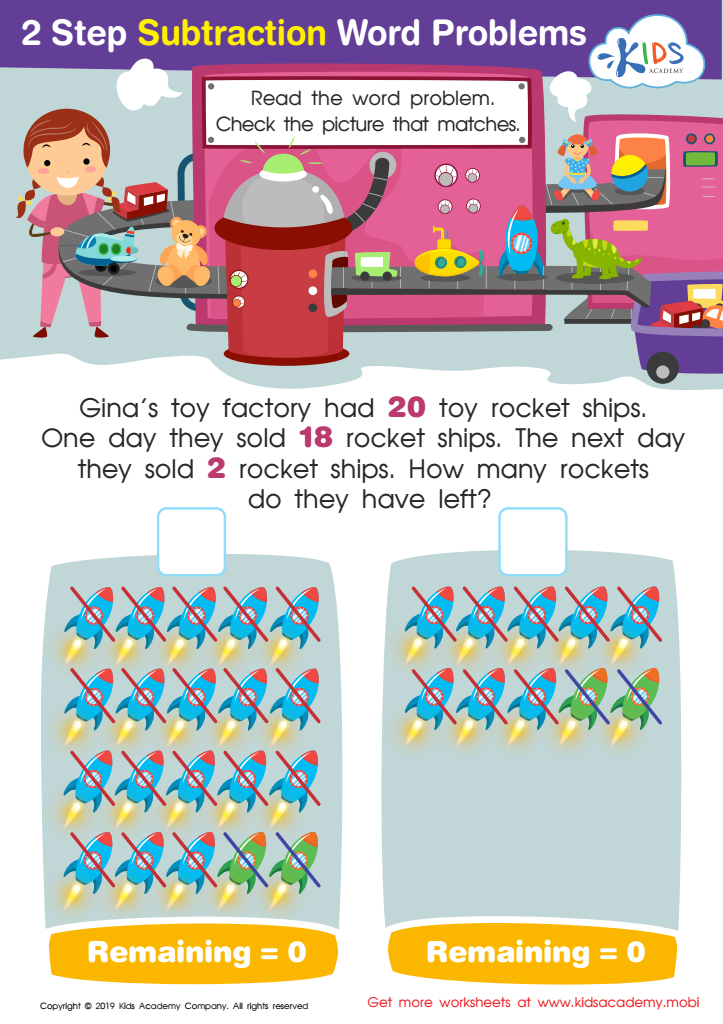

Step Subtraction Word Problems Worksheet


Solve the Problem: Trick–or–treating Worksheet


Addition and Subtraction: Word Problems Worksheet
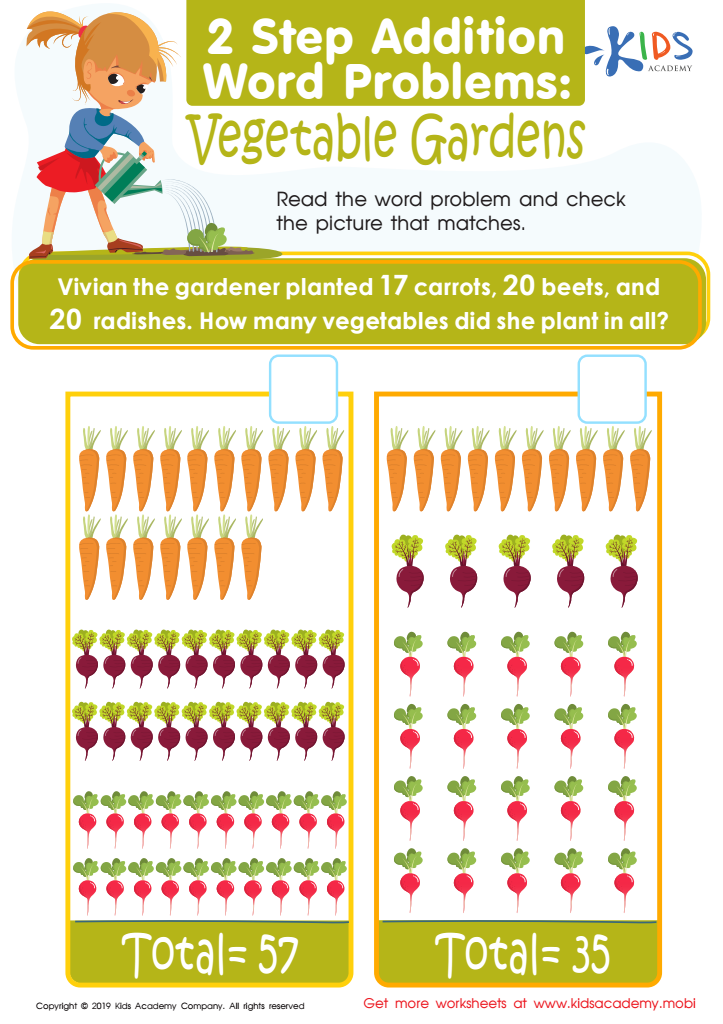

Vegetable Gardens Worksheet
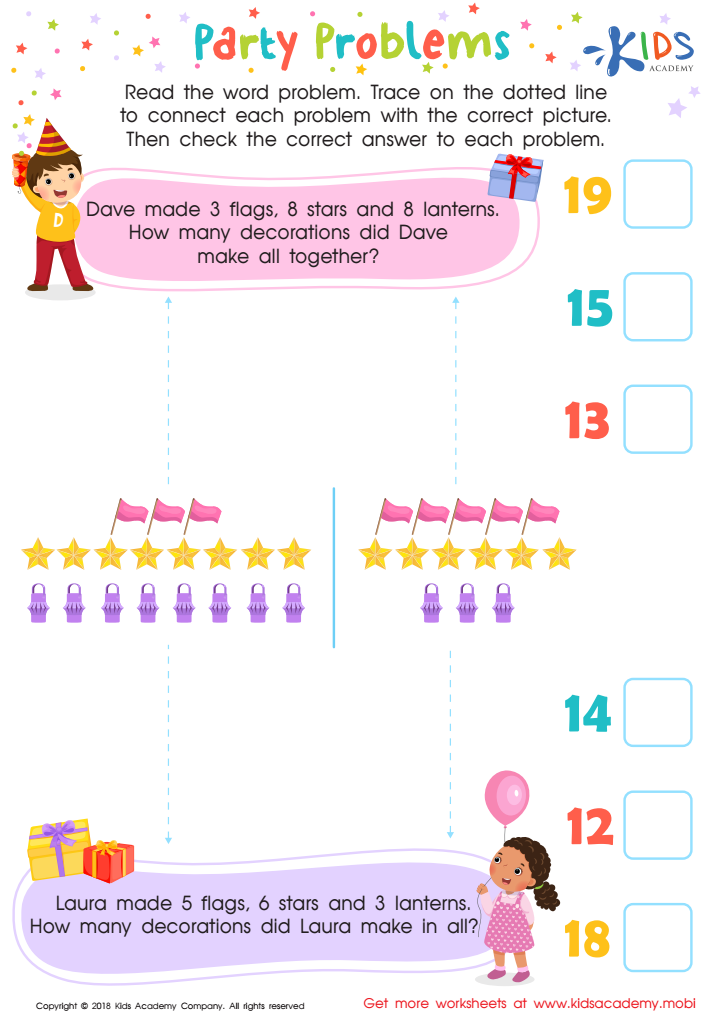

Party Problems Worksheet
Normal two-step word problems are a vital component of a child's early mathematical development, especially for ages 6 to 9. These problems help children build critical thinking and problem-solving skills, essential not only in math but across all academic subjects and real-life scenarios.
Engaging with two-step word problems encourages children to read carefully, understand context, and extract relevant information, thereby honing their comprehension and analytical skills. This practice fosters a growth mindset, allowing students to tackle challenges confidently without fear of failure.
Additionally, two-step problems introduce children to the concept of sequencing in problem-solving. Students must determine the order of operations, which enhances their understanding of mathematics as a structured language. This foundational knowledge paves the way for future mathematical concepts, such as algebra.
From a parental or teacher's perspective, supporting children as they engage with two-step word problems helps build perseverance and resilience. It enables educators and parents to identify students' strengths and areas needing support, fostering a more personalized learning experience. Ultimately, caring about these problems means investing in a child's cognitive development, equipping them with skills that will benefit them in school and their everyday lives.
 Assign to My Students
Assign to My Students








